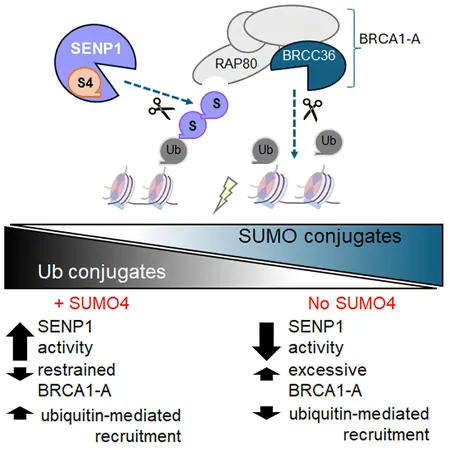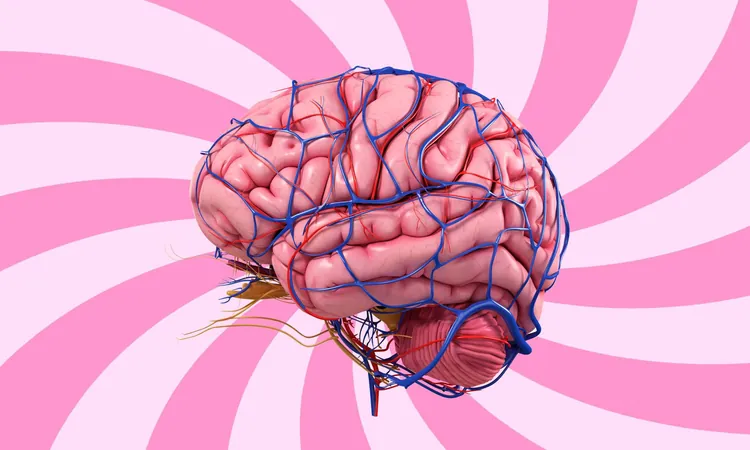
Revolutionary DNA Repair Discovery: How a 'Twisting Switch' Could Transform Cancer Treatment
2025-04-14
Author: Rajesh
Unlocking the Secrets of DNA Repair
A groundbreaking study by researchers at the University of Birmingham has uncovered vital insights into DNA repair mechanisms that have perplexed scientists for years. Recent publications shed light on how cells orchestrate the complex repair processes essential for combating cancer.
Why DNA Repair Matters in Cancer Treatment
Our cells are in a constant battle to protect their DNA, vigilantly monitoring for damage and swiftly deploying specialized proteins, dubbed DNA repair "machines," to mend any breaches. These repair processes must be meticulously regulated; otherwise, they can falter, leading to severe consequences. Chemotherapies often exploit this vulnerability by damaging DNA to halt the chaotic growth of tumors. Enhancements in our understanding of DNA repair can lead to refined cancer therapies that more effectively curb tumor progression.
Professor Jo Morris from the University of Birmingham emphasized, "These discoveries not only illuminate how our cells mend damaged DNA, but they also pave the way for innovative strategies in anti-cancer therapies, enhancing existing treatments and inspiring new ones."
The Twisting Switch: A Game Changer in DNA Repair
In the first study published in Nature Communications, researchers unveiled a revolutionary "twisting switch" that temporarily deactivates early repair signals by reshaping proteins. This mechanism is critical; without it, repair signals remain active too long, which can hinder the proper sequencing of the DNA repair process. The findings clarify how the DNA repair protein RNF168, notorious for causing excessive signaling, is regulated. The study details a four-step process that efficiently removes RNF168 from chromatin, ensuring that cells are not overwhelmed by DNA damage signals. When these steps fail, cells show heightened sensitivity to radiation.
SUMO4: The Unsung Hero in Preventing Repair Overload
The second study, published in Molecular Cell, spotlighted the lesser-known SUMO4 protein. Contrary to previous beliefs that it played a minor role, this study reveals that SUMO4 is vital in preventing the DNA damage signal from becoming overbearing. Its functions are crucial for maintaining cellular balance during the intricate DNA repair process.
These findings not only deepen our comprehension of cellular mechanisms but also open new avenues for enhancing current cancer treatments. As research continues, the potential for crafting more effective therapies looms ever closer.



 Brasil (PT)
Brasil (PT)
 Canada (EN)
Canada (EN)
 Chile (ES)
Chile (ES)
 Česko (CS)
Česko (CS)
 대한민국 (KO)
대한민국 (KO)
 España (ES)
España (ES)
 France (FR)
France (FR)
 Hong Kong (EN)
Hong Kong (EN)
 Italia (IT)
Italia (IT)
 日本 (JA)
日本 (JA)
 Magyarország (HU)
Magyarország (HU)
 Norge (NO)
Norge (NO)
 Polska (PL)
Polska (PL)
 Schweiz (DE)
Schweiz (DE)
 Singapore (EN)
Singapore (EN)
 Sverige (SV)
Sverige (SV)
 Suomi (FI)
Suomi (FI)
 Türkiye (TR)
Türkiye (TR)
 الإمارات العربية المتحدة (AR)
الإمارات العربية المتحدة (AR)